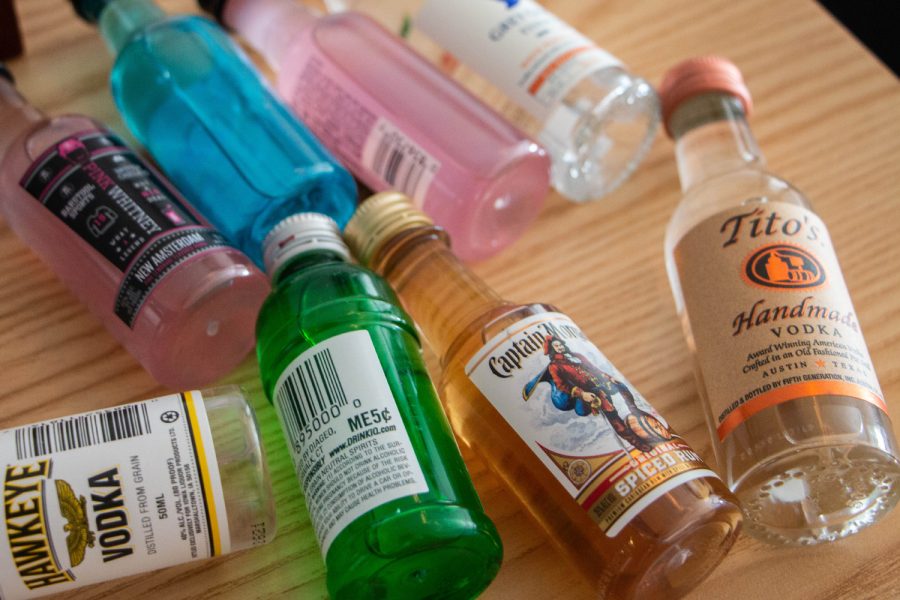Opinion | Increase in alcohol consumption case for concern
Reports that show alcohol use in Iowa increasing over time are cause for concern.
Photo Illustration by Kate Heston.
April 26, 2022
Iowans drink more than the average American.
According to reports in 2021, 22.8 percent of Iowa adults were binge drinking, which was 5.2 percent above the U.S. average during that time. In 2022, the Iowa Department of Public Health claimed alcohol consumption in the state remains above the national average, and even moderate to light drinking is dangerous because of its health-related and second-hand consequences.
Have you ever popped a few cold ones with your friends and had a good time? Probably, which is understandable because social drinking has been linked to an increase in positive emotions and social bonding, and a decrease in negative emotions.
But what does it mean to drink too much? Alcohol consumption guidelines suggest that men can have two drinks or less a day, meaning that alcohol consumption beyond these guidelines is “drinking too much.”
Dangers come with the overconsumption of alcohol, and many of them are health-related. Studies show that drinkers, even light to moderate drinkers, are at risk for seven forms of cancer, in addition to liver and brain complications. Essentially, if alcohol does not negatively affect you now, it might still do so gradually over the span of weeks, months, or years.
Alcohol also poses secondhand effects that are dangerous to a drinking individual and those around them. An estimated 21 percent of women and 23 percent of men have been injured in some way as a direct result of alcohol abuse. The ways that people have been a detriment to themselves and others because of alcohol include instances of traffic accidents, violence, harassment, emotional distress, and financial difficulty.
Considering that the overconsumption of alcohol causes adverse health problems and one in five American adults, approximately 53 million people, experience harm from secondhand drinking, it is clear why the fact that Iowa has above-average alcohol consumption is concerning.
Regardless, it may be argued that some alcohol consumption is beneficial. This is not only evident in social drinking scenarios, but some reports show that moderate drinking also reduces the risk of developing heart diseases and diabetes. However, these benefits do nothing to decrease the risk of developing cancers or other diseases, or experiencing injuries from secondhand drinking.
In addition, with regards to the aforementioned health benefits of moderate drinking, a study refutes its proactive effects by stating that the validity of it reducing the risk of developing certain illnesses has not been accurately tested. This means that, aside from making social gatherings more fun, drinking may have no benefits at all.
Drinking, specifically in social settings, can be fun, but there are too many risks associated with alcohol. The Centers for Disease Control and Prevention suggest that non-drinkers should not start drinking for any reason, alluding to its potential consequences.
Obviously, no one should drink too much. However, evidence supports the idea that even moderate to light drinking is risky. If possible, avoid drinking altogether, as no amount of good can justify the negative effects of alcohol.
Columns reflect the opinions of the authors and are not necessarily those of the Editorial Board, The Daily Iowan, or other organizations in which the author may be involved.



